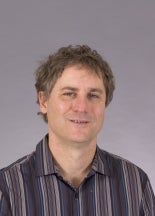Angela Carter


Associate Professor, Political Science, Balsillie School of International Affairs Fellow, and Associate Director Arts First
Dr. Carter's research has focused on environmental policy and politics surrounding oil extraction in Canada’s major oil producing provinces: Alberta, Saskatchewan, and Newfoundland & Labrador. She has analyzed how environmental policy is developed and contested, emphasizing tensions between environmental/community impacts and economic imperatives. This work was primarily supported by a Social Sciences and Humanities Research Council (SSHRC) Strategic Research Grant, “The Environmental Assessment Processes of Canadian 'Frontier' Oil and Gas,” with Drs. Gail Fraser and Anna Zalik at York University's Faculty of Environmental Studies.
She is now extending this work in an international comparative project on supply-side climate policy, focused on political conditions necessary to wind down fossil fuel extraction in developed-world states. She is particularly intrigued by the rise of “keep it in the ground” movements and legislation.
Brendon Larson


Professor, School of Environment, Resources and Sustainability (SERS), and Associate Dean – Undergraduate Studies, Faculty of Environment
Brendon's research concerns the social dimensions of biodiversity conservation, or, more specifically, how people perceive and evaluate conservation options in the current era of dramatic global change (which some call the Anthropocene). He is interested in changing views and practices of nature and conservation in this era, with a focus on topics such as invasive species, assisted migration, and novel ecosystems. If you are interested, please peruse his website and then contact him to discuss specific research options. He also has research projects in other areas, including the role of metaphor in the framing and communication of environmental issues. At present, he teaches an introductory ecology course and a field course on natural history where students observe plants and animals directly on the Bruce Peninsula.